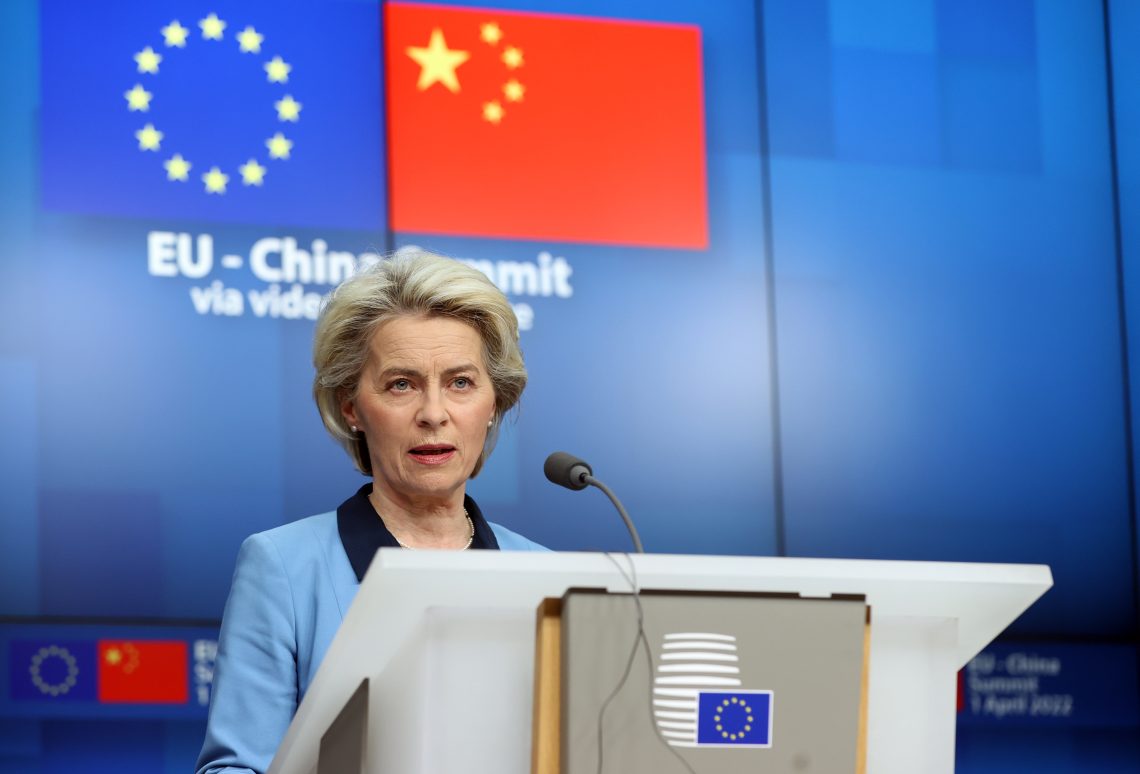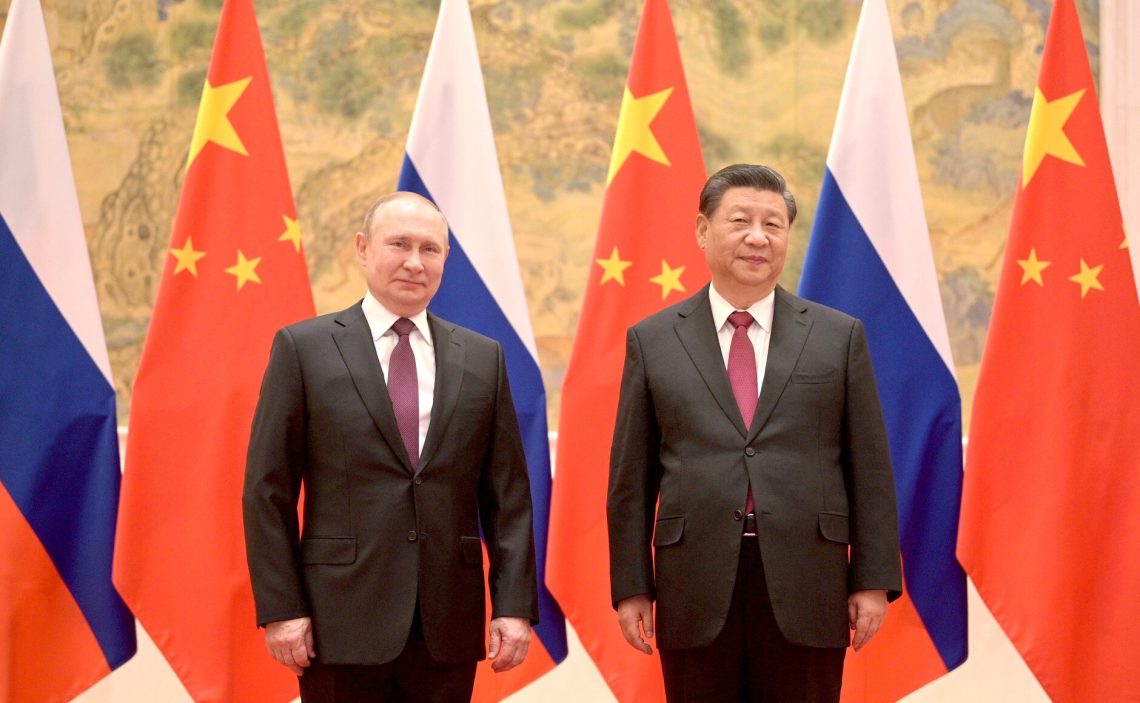Europe’s uncertain Indo-Pacific strategy
If Beijing supports Moscow’s war on Ukraine more forcefully, Europe’s strategic choices in Asia will only become more difficult.

In a nutshell
- The war in Ukraine puts Europe’s Indo-Pacific strategy on the back burner
- Few European countries have strategic interests in Asia
- More defense spending indirectly helps the U.S. confront China
With Russia’s war on Ukraine now in its third month, the outcome remains uncertain as the death toll and destruction mount.
As recently as a few months ago, Asia appeared to be an increasing focus for Europe. There was hope in Washington that European countries could play a larger role in Asia as the Biden administration sought partners to counter China’s economic and diplomatic might.
European engagement in the Indo-Pacific was always questionable, in any case. Few European countries have strategic interests in Asia. Most have an economic interest there, given China’s market size and status as one of their top trading partners. But few have been willing to press Beijing on sensitive issues openly. This posture, however, has been slowly changing.
And so, when it seemed Europe may be taking a slightly greater interest in Asia, we now have war in Europe. Given Russia’s belligerence, it may be harder for European officials to justify putting resources toward Asia. Already, several NATO and European countries announced increased defense spending. As a result, there may be less European interest in Asian matters. At the same time, if more NATO and European members ramp up their defense capabilities, it may help Washington shift more of its resources to the Indo-Pacific instead – assuming Washington doesn’t get too caught up in Europe as well.
Patchwork of strategies
There has been growing interest in Europe around the Indo-Pacific. Both France, the only European member with territory in the Pacific, and Germany have published respective Indo-Pacific strategy documents. The Netherlands, too, has a set of guidelines that lays out its European vision. While less relevant for EU policymaking but still important, the United Kingdom has not published a strategy specifically on the Indo-Pacific, but its Integrated Review of Security mentions the region’s growing role while calling out China as a “systemic competitor.” More countries are talking about the Indo-Pacific, its significance for Europe and the opportunities there.
And so, early last year, the European Council released its EU Strategy for Cooperation in the Indo-Pacific. This document also recognizes the Indo-Pacific’s importance and the increasing competition fueling trade and security tensions. It prioritizes keeping the EU as a “cooperative” partner on issues such as climate change and other sustainability initiatives. It also suggests that the EU maintain its strategic autonomy while engaging with partners in the Indo-Pacific. Perhaps that is why the document falls short of calling out specific issues with countries such as China. Instead, the strategy focuses on working with partners and organizations in various matters such as human rights and defense.
The nonconfrontational approach of the EU’s Indo-Pacific strategy should not come as a surprise. According to a 2021 study by the European Council on Foreign Relations, EU members have differing views on what is a priority for them in the Indo-Pacific and the kind of relationship they want with China. The study suggests that “Ultimately, there is a real risk that Europe’s strategic approach to the Indo-Pacific may be no more than a set of principles without any real substance to back them up. This would convey no real political message to either friend or foe.” Certainly, some countries in Europe like Spain and Hungary are more interested in maintaining “strategic autonomy.”
It is hard finding consensus among European members.
However, several months later, the European Commission released its Joint Communication to the European Parliament and the Council on the Indo-Pacific. While echoing much of the Council’s strategy, it was a bit more critical of China’s military expansion and human rights abuses while mentioning potential partnerships with places like Taiwan, a highly sensitive issue for Beijing. Why the change in sentiment? One reason may be that between the publication of the Council’s strategy document and the Commission’s joint communique, EU-China relations took a turn for the worse after back-and-forth sanctions between Brussels and Beijing, which led to a suspension of the EU-China Comprehensive Agreement on Investment.
The lesson for European members should be that it is hard to square a desire to engage more in the Indo-Pacific without ultimately confronting China on a myriad of issues, whether its human rights abuses, uncompetitive practices, military expansion, pollution, cyber incidents, and more. And it is still questionable how confrontational European partners want to go. It will be tough to have a unified European position on some issues. At a recent Ministerial Forum on the Indo-Pacific, issues like freedom of navigation were brought up. But it is questionable what a European response could be. Instead, it is individual member states taking the initiative. Indeed, we saw freedom of navigation operations last year from France and notably Germany, which sent a frigate to the South China Sea for the first time in nearly two decades.
The wild card here is whether Beijing decides to be more active in supporting Russia’s invasion.
In essence, finding consensus among European members is hard. Instead, European engagement in the Indo-Pacific will likely continue to be led by individual states. This is why there is an increasing interest in partnerships in Asia. For example, France sees India as its most important partner in the region – India being a member of the Quad partnership with the United States, Japan, and Australia, and having recent border clashes with China. Meanwhile, Japan is actively looking for more partners to join its Free and Open Indo-Pacific initiative. And it has found Germany to be an increasingly interested partner. Germany and Japan held their first “2+2” meeting last year between diplomats and security officials.
A new American approach
It is also important to consider the American approach. The administration of President Joe Biden recently rolled out its Indo-Pacific Strategy. And like the EU’s strategy, it falls short of calling out China’s belligerence in the Indo-Pacific. The document also fails to prioritize the issues that the White House wants to work on. But it does share some of the same sentiment around cooperation. In fact, the document very much emulates the European strategic paper and stresses alignment with the EU in the Indo-Pacific. And as the Biden administration works on its Indo-Pacific Economic Framework, it will be looking for partners to join in its efforts once it comes out.

Scenarios
The EU’s Indo-Pacific strategy document may have started a considerable discussion about Asia and the Pacific across Europe. However, it has not changed the fact that EU members have different interests in the region. While some are hopeful there can be a unified EU policy toward countries like China, it is unlikely to emerge soon. Instead, Europe’s Asia policies will continue to be driven mainly by those few members with historic strategic and economic interests already there, such as France and Germany. This remains the case now that Russia has invaded Ukraine. And while these various interests in Asia remain unchanged, European countries will likely focus their attention closer to home for the foreseeable future.
Europeans may place their Indo-Pacific strategy on the back burner for a while, but this does not mean a renewed interest in European and NATO defense cannot support Washington’s Indo-Pacific strategy. American policymakers have been calling on European countries to increase their defense spending for years. Now that more countries are declaring a readiness to do so, it could free up resources as the Biden administration looks to realize its Indo-Pacific strategy with partners of the Quad. A word of caution, though, is that while European members have only just come around to confronting China on certain issues, it is unclear how the war in Ukraine will change China and its relationship with Russia. Beijing may become a stronger supporter of Russia, further shifting sentiment in Europe against China.
Europe’s varying views will continue to impede consensus and individual members will lead Europe’s Indo-Pacific engagement. But for now, Russia’s invasion of Ukraine will draw European focus closer to home. Increased defense spending in Europe could allow American policymakers to divert more resources to Asia once events in Europe settle down. However, the wild card here is whether Beijing decides to be more active in supporting Russia’s invasion. Given Europe’s division in confronting China in the Indo-Pacific, more active support of Russia by China could make things more difficult for Europe going forward.








